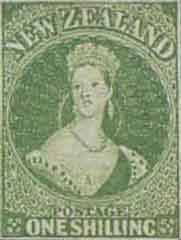On 2 June, New Zealand Post sent out a letter to collectors advising that it had decided not to release the Maori Performing Arts stamp issue. This issue was to have shown a variety of Maori kapa haka stances. They stated that this decision followed consultation with a range of Maori arts and culture communities, and that concerns about the design style of the stamps had been raised. The letter went on to say that as the stamps had not been released, the stock was accounted for and that it would be destroyed.

The stamps were designed by the artist Abel Vaireka who said he was trying to capture the spirit of kapa haka in a contemporary design. He was quoted as saying .For me, my passion for kapa haka began at an early age and the intention was to capture this spirit in a design. Working on a stamp issue provides an exciting opportunity from a design perspective and so I am very disappointed that the issue won't go ahead and that some people think the designs are controversial."
New Zealand Post initially defended the cartoon design of the stamps, arguing that they were fresh and contemporary. The stamps were intended to celebrate kapa haka as an important aspect of Maori culture and New Zealand identity. Some Maori however, described them as ugly and insensitive.
Don Ion, the Rotorua stamp dealer, was also strong in his criticism of the designs, and engineered a campaign to have the issue cancelled. He described the proposed issue as being in bad taste, and said that the cartoon-type characters were culturally insensitive and ridiculed Maori. Don pointed out that the designs were .ridiculous and out of proportion with bulging muscles." He was also concerned that the stamps would be seen around the world. "There would appear to have been little consultation with Maori on the production of these 'jam labels' which will make us the laughing stock of the world."
Responses from Maori were equally strong. Te Arawa kaumatua Anaru Rangiheuea believed the stamps .were stupid and insensitive. I don't think Maori should be portrayed like that ... Even the colours are all wrong. They are modern hand-drawn and not symbolic of Maori. They look cheap and ugly. They should be proper photographs. Maybe they could have taken photos of different marae, with the permission of the tribe, or proper cultural performers, not stupid comic strips."
The initial response of New Zealand Post to this criticism was, in the words of Ivor Masters, New Zealand Post Stamps General Manager, that representatives from Te Papa and Te Puni Kokiri, the Ministry for Maori Development, had been consulted on the designs. Ivor Masters said the Maori performing arts stamps offered "a wonderful opportunity" to celebrate an art form that was "totally unique" and of great cultural significance to New Zealanders. "We think the images by a young, local artist are a fresh and contemporary interpretation of kapa haka."
The decision not to issue the stamps was greeted with acclaim by various groups, including the Maori Party. "Well done, NZ Post, for consulting with tangata whenua - and then actually listening to what Maori said rather than running roughshod over the very people they are looking to honour" said Dr Pita Sharples. "New Zealand Post has demonstrated its credibility and professionalism as an organisation, in being prepared to change as a result of adverse feedback" he said. In the Rotorua Daily Post Don Ion, who had been planning a massive letter drop in Rotorua opposing the stamps, was quoted as saying "I'm stoked. This is great. It is a victory for Maori Dom. This is the right thing to do. I've had so much feedback by people who had taken offence and said it makes Maori look like Japanese wrestlers.. In one of his auction catalogues Don described the move as .a victory over a state owned monopoly. N.Z. Post should now have an independent enquiry to an issue that has cost tax payers millions of dollars.. Don also called for those responsible to be either severely censored or removed from office.
Sadness was expressed however by some Maori that the issue had been withdrawn. Rotorua deputy mayor and kapa haka tutor Trevor Maxwell argued that presentation packs sold with the series would have highlighted and promoted kapa haka to the rest of the world.
New Zealand Post scrapped more than a million stamps depicting Maori in kapa haka poses and New Zealand Post Group Chief Executive, John Allen admitted that doing so had cost the company around $190,000. New Zealand Post has said it will create a stamp issue that celebrates kapa haka differently at some point in the future, and that the Maori community would be widely consulted regarding any future stamp series depicting Maori.
It was no doubt widely expected amongst the stamp collecting community that some of the Kapa Haka stamps would find their way to the general public, in spite of initial comment from New Zealand Post that no copies had been sent out. The New Zealand herald of 20 July noted that New Zealand Post was now admitting that 500 of the stamps had been issued by mistake, and that eight customers had received their stamps before the due date. Steven McLachlan from Christchurch was quick to estimate that the stamps might very quickly rise to $2,000 in value, while Alan Craig, from Hamilton, was quoted as saying that the eight lucky recipients of the stamps "are sitting on potentially a million dollars-worth of stamps". However, not to worry - New Zealand Post stamps and collectables general manager Ivor Masters has assured us that procedures have been tightened to ensure the mistaken distribution of stamps does not occur again.
Sources: Daily Post (Rotorua) 3 June 2006, Dominion Post 19 May 2006, New Zealand Herald 18 May 2006 and 20 July 2006 Radio New Zealand Newswire 2 June 2006, Scoop Media 6 June 2006.
